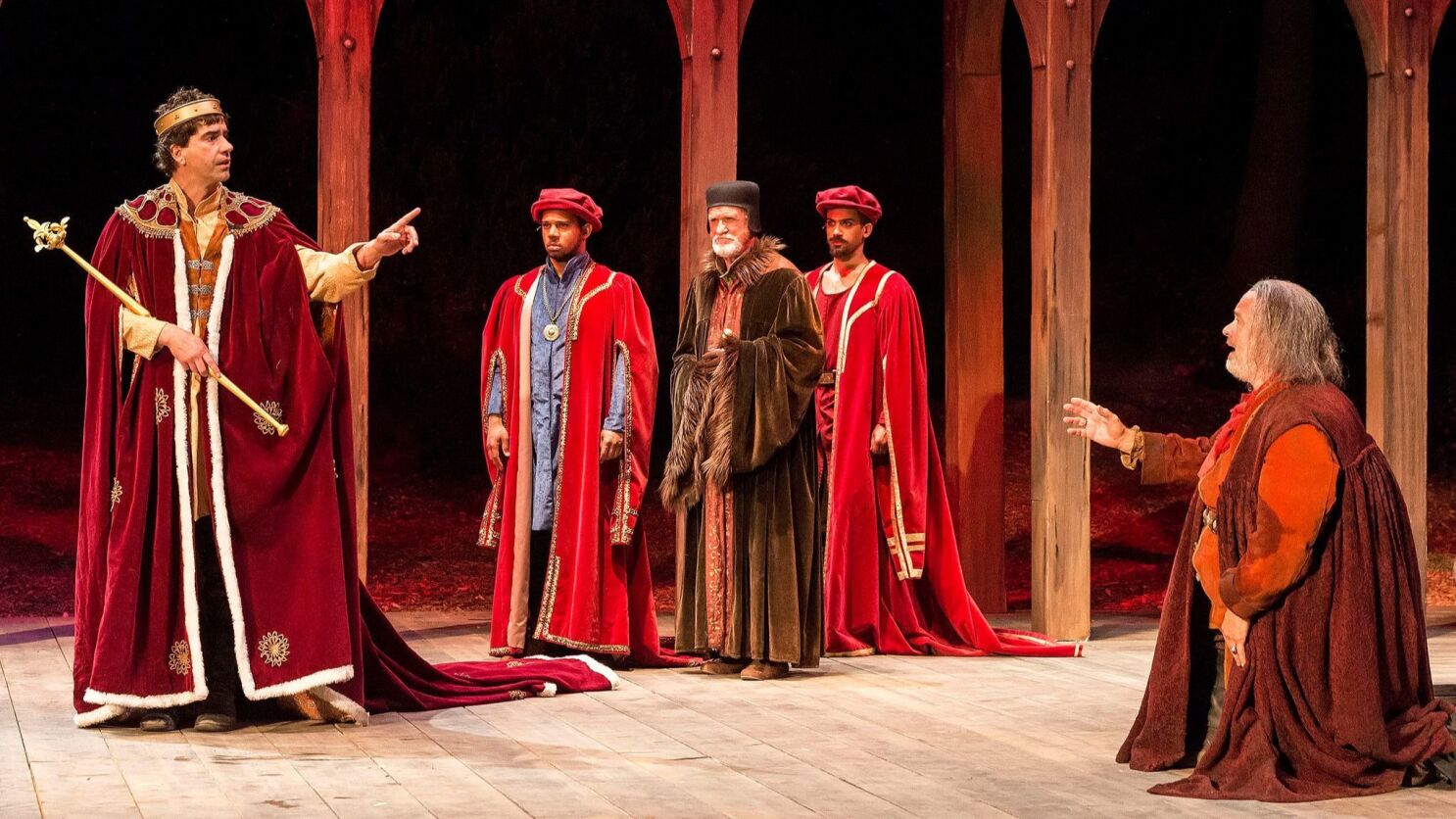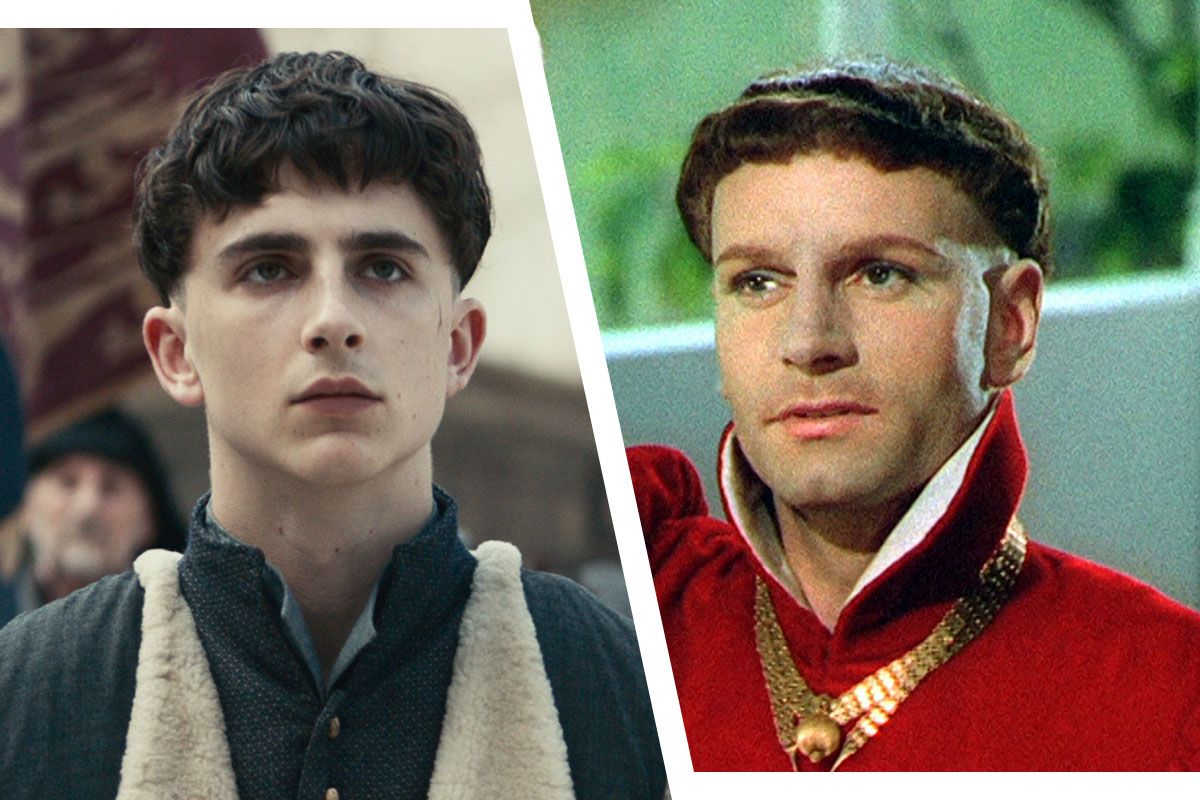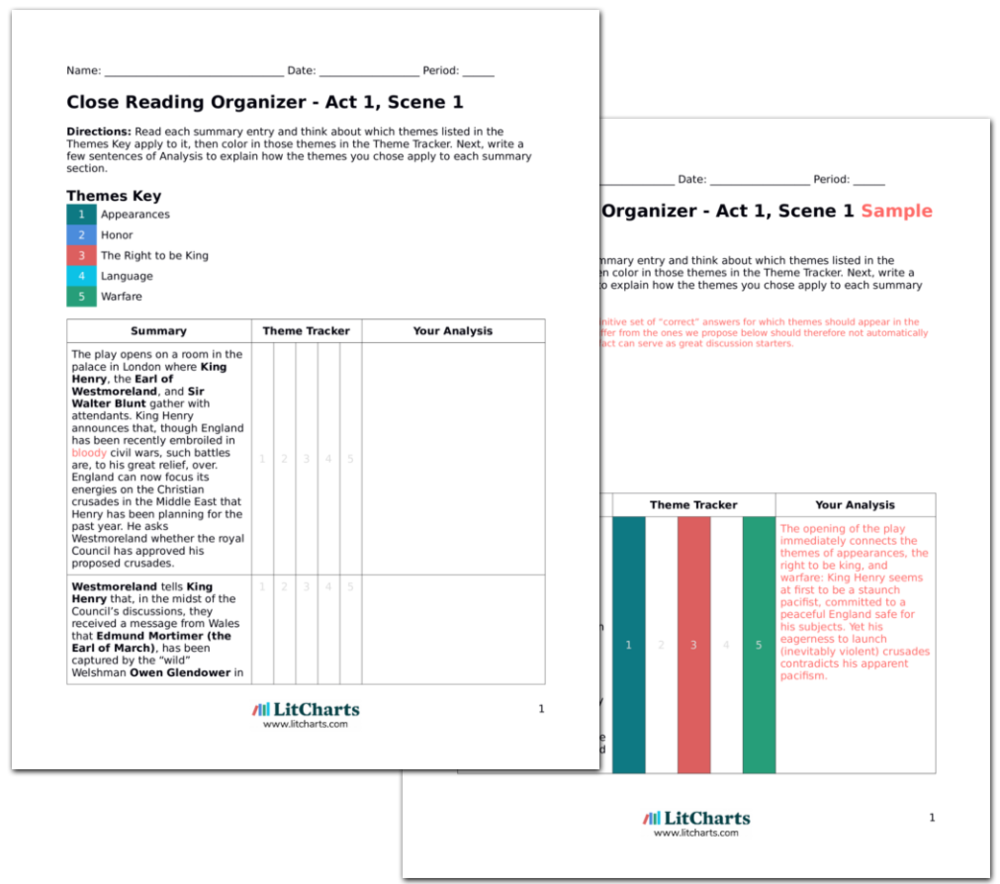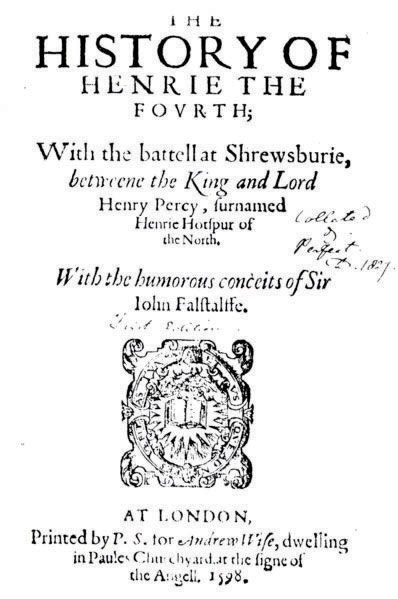By Marc Connor Ph.D., Washington and Lee University
Compare and contrast the characters Hal and Hotspur in Henry IV, Part 1. Choose one key similarity and one key difference in these two characters, and use this textual evidence to support a thesis, or lesson, conveyed through this play. In what ways is the character Hotspur in. Hal and Hotspur have a similar ideology as seen in their common metaphors; however, Hal speaks with various extended metaphors, biblical allusions, and strategically places his use of verse and prose while Hotspur speaks with simpler metaphors, war imagery.
Character contrast is a vital tool for Shakespeare to convey his messages, especially in Henry IV. King Henry IV, Sir Falstaff, Hotspur, and Prince Harry are all involved in shaping the character contrast in Henry IV. One of them, however, is the link that connects the contrasting ends of the spectrum. Read on to recognize this core character.
Shakespeare uses numerous literary tools to convey the message of his plays. Henry IV is no exception, and character contrast in Henry IV is a vital tool. Without finding the contrasts, it is unlikely to perceive what Shakespeare really wanted to say. The core of the story is the contrast between King Henry IV and Sir John Falstaff. The boundary-crossing figure here is a young Henry V, who connects the two worlds at the ends of the contrast.
Learn more about Shakespeare’s Theater and Stagecraft.
The Core Character Contrast in Henry IV
One of the leading messages Shakespeare aims to convey inHenry IV is that to reach manhood, one must willingly leave childhood and funbehind. He has portrayed childhood and its irresponsible fun-seeking in Sir John Falstaff, who does not look like a knight enough.Some even doubt how he became a knight in the first place.
This is a transcript from the video series How to Read and Understand Shakespeare.Watch it now, on The Great Courses Plus.
The other side of the charactercontrast spectrum is King Henry IV himself: A strong man who can rule, play therole in political games, and take. Hal needs to decide which side of thecontrast he goes with.
Shakespeare uses charactercontrast in Henry IV consciously and skillfully. Toshow this contrast, Falstaff does not appear in the court scenes, the same waythat Henry IV does not appear in the tavern scenes. He does not evenbring Henry IV and Falstaff on stage at the same time. When Hal becomes KingHenry V, Falstaff no longer appears in the play, and even his death is reportedby somebody else. Thus, juxtaposition on stage is also a fundamental tool toshow contrast.
The Character of King Henry IV
King Henry IV symbolizes order, rule, and law in the play. He had to fight to gain kingship, as the true king was Richard II, his cousin. Thus, there is a contrast to this character. He became the embodiment of law through being an outlaw in the first place. Shakespeare questions kingship through this story.
Henry IV is embarrassed with Hal’sbehavior, and even compares him to Richard II, saying he is unworthy of thecrown. At one act, he advises his son on kingship qualities and reveals to himthat the best skill to possess is ‘acting.’ Throughout the play, Hal provesthat he is a talented actor, especially when facing Falstaff a few times.
Compare And Contrast Hal And Hotspur Quotes
Learn more about Richard II-History and Kingship.
The Character of Falstaff
As mentioned, Falstaff is a knightwho does not act and look like one. He believes he is a true friend to Hal, buthe misleads the prince. This witty fat man spends much time in the taverns, andHal goes with him. He embodies fun, and that is the reason he dies in the playwhen Hal finally chooses to be a responsible king. There is no place for fun inKing Henry V’s life.

The Character of Hal
Hal is the boundary-crossingfigure, connecting the world of Falstaff with the world of Henry IV. He spendsmuch time in taverns with Falstaff, he helps rob travelers at night, and hedoes not seem to understand his profound responsibility. Nevertheless, an essentialpoint in Shakespeare’s works is the distinction between appearance and reality.
In different parts of the play,Hal shows his real personality, which is an impressive, courageous, inspiring,and smart man who understands politics and knows very well how to play roles.Still, he has to choose between Falstaff and his father, the king, the twosides of the contrast. Whom does he choose in the end? King Henry IV. Thischoice is made after King Henry IV and Falstaff are both dead, showing thedifficulty of making this decision, and sacrificing fun for duty.
Learn more about The Drama of Ideas in Henry V.

The Other Important Character Contrast in Henry IV
At an important scene, Hal stands victorious between twodead bodies. One is Falstaff, whose death shows all the childhood and fun inHal’s life is now gone. But who is the other dead body?
Hotspur, or Percy, was the most admirable,noble, and courageous of the rebels opposing King Henry in this play. Percy isthe son of Northumberland and tries to prove his superiority over Hal. However,he is too courageous and not how a king should really be. He is brought at oneend of a vital contrast with Falstaff: courage. As much as Hotspur is known forcourage, Falstaff is known as a coward. Hal stands between these two, to showthat he needs to make a balance to be a courageous king.
Common Questions about Character Contrast in Henry IV
Q: What is the name of the king in Shakespeare’s play Henry IV Part I?King Henry IV’s son, who will eventually become King Henry V, is called Harry, but in the play, we usually see him with the name Hal. He is the link between character contrasts in Henry IV.
Q: What is the theme of Henry IV?In Henry IV, two stories of rebellion and disorder run parallel and form two important character contrasts in Henry IV: the story of Prince Hal’s ‘boyhood’ rebellion against his father and the rebel uprising led by the Percy family, alongside Falstaff’s influence on Hal.
Q: Who is Northumberland in Henry IV?Compare And Contrast Hal And Hotspur Pictures
Northumberland is one of the main rebels against the king, a member of the Percy family, and the father of Hotspur. Hotspur shapes the vital character contrasts in Henry IV.
Q: Why is Falstaff important?Falstaff embodies the childish fun-seeking of Hal and is in fact one side of character contrast in Henry IV. Hal has to leave him behind to finally become the man who can rule.
Keep Reading
Discovering the Meaning Behind Scenes & Words: Key Tools in Understanding Shakespeare
Deconstructing Genius: Shakespeare’s Techniques
Stagecraft & Participation: Key Tools in Understanding Shakespeare
Both Freund and Rousseau describe society in terms of sacrifices made by the individual and the benefits he receives in return. Rousseau speaks in terms of the social contract, a rational agreement between people. Freud's civilization is an instrument for the repression of instincts of the aggressive type, but a 'process in the service of Eros.'
Rousseau's community is essentially synthetic, resulting from human reason, not instinct. The group is a problem-solving device, for the general good, to overcome obstacles to human existence which the individual alone could not handle (book I, chapter 6, pg. 59). Humans form groups in order to accomplish tasks for the general good, but there is always the possibility that the ideas of the group are mistaken, so in actuality, society may not always work for the general good. A democracy would be a nearly ideal form of decision-making, because it is representative of the general will, an idea which Rousseau holds as fundamental to a well-run nation. The general will should be the basis of government. A law is an expression of the general will, and since each citizen is a part of the general will, to obey the law means only to obey your own will. Rousseau's contention is that one must not sacrifice to be a citizen - or not quite: the individual sacrifices his particular freedom but then gets it back in the form of a greater general freedom.
Freud's society is formed in part because of mutual need, but there is more. The aggressive instincts would pull groups apart if it weren't for the Eros in man, the instinct to unite people into groups; additionally, scapegoats are available for left-over aggression. Society is an uneasy equilibrium of these three forces. War is an example of just how uneasy the balance is. Freud's civilization has no real contract in the sense of Rousseau, but he does make an indirect contract which forces the desire of the individual to conform to society's commands. 'The super-ego takes the place of the parental function, and thenceforward observes, guides, and threatens the ego in just the same way as the parents acted to the child before' (A.M., pg. 89). In this way the societal values (which are embodied in the laws) are transmitted through the parents to the individual. Thus, one automatically submits to the repression of desires because the super-ego is a cultural product. Freud's goal here is the repression and sublimation of natural desires, for these make co-existence impossible. Sublimation is more effective and less wasteful than repression.
'Every member of the community,' says Rousseau, 'gives himself to it ... with all his resources, including all his goods.' How then can Rousseau keep up his idea of something for nothing? 'The state, vis-a-vis its own members, becomes master of all their goods ...' The definition of vis-a-vis in Webster's leads me to think that he means that the state and the citizen operate together in the custodianship of property. In a sense, then, the state owns property through the individual, so that he has not given it up. Rousseaus's social contract is a considerably more complicated concept than Freud's.
According to Freud, we make sacrifices to join civilization; we must suffer our natural instincts to be repressed. And Freudian society has benefits; that of 'the advantages of work in common' for the common good. Rousseau's society either does or doesn't require sacrifices from us; I think he wants to say that it doesn't. And Rousseau's society has advantages; 'the state has been established to achieve ... the common good.' Freud sees civilization as the answer to some of the problems of the human condition; Rousseau also sees that 'the human race will perish if it does not change its mode of existence' into the state. Both Freud and Rousseau, then, see the state as saving us from the problems of the human condition, but each sees the problems of the human condition somewhat differently, or emphasizes different aspects of the problems of the human condition, and so constructs the saving state in a somewhat different light.
 Freund, Hobbes, and the Metaphor of the Ant
Freund, Hobbes, and the Metaphor of the AntOr,
All about Ants (an animalistic, albeit apt, alliteration): an altogether asinine, and amazingly anemic, articleIn their considerations of the origin of civilization, both Freud and Hobbes turn to ants to illuminate human society. There are both similarities and differences in their explanations of why the state is not like the anthill, which they both consider to be at least partially ideal (perhaps because both have materialistic tendancies). Both view man's nature negatively and see the community as the cure for the human condition.
The first of the six reasons Hobbes gives for the ant-gap is that men have ambition, a 'joy consisting in comparing himself with other men,' which makes a person work sometimes against others, instead of working for the common good (both Freud and Hobbes think that comparing one's self with others is fundamentally an unsympathetic atitude, against Rousseau and others). Freud would generally agree with this, restating it as manifestation of the Oedipus complex and the outwardly directed aggressive instincts.
The second reason given in the Leviathan for the ant-gap is that men have ideas of 'honor and dignity' which are connected with possession (a person 'owns' these things) and from possession arises envy and jealousy and finally war. Freud's final ideas about human conflict credit uncontrolled instinct with the origin of war. Freud says that aggression creates property, i.e., war leads to possession, while Hobbes says that possession leads to war.
Hobbes' third reason is that men have specialization and that some men are leaders, whose reasonings have lead them to different ideas and conflict results when these diverse thoughts are put into implementation.

His fourth reason is that ants have no speech and so cannot lie or provoke unrest.
In his fifth reason, he apparently attempts to make the point that, unprovoked, an ant will not attack his fellow, while humans spend their periods of peace in brewing maliciousnes and discontent.
The sixth reason for the ant-gap given in Leviathan is that ants are by nature cooperative, whereas humans live together by synthesis, and something 'else besides covenant' is required 'to make their agreement constant and lasting, which is common power' to enforce unity. Freud does not agree, because he says that the community is an organic creation, the expression of eros which is the instinct to unite people. But Freud does opine that society needs scapegoats.
The ant comparison is one which could be made only with this kind of animal, because some animals exhibit possessive and individualistic tendancies. Ants are not lazy. They carefully identify objects, scrupulously distinguish between things that are alike and things that are different, and make sure that everything is in the place where it belongs.
Both of these thinkers agree that communal living requires sacrifice. Hobbes tells us to give up our power and instinct to survive. Freud asks us to surrender similar concepts in the repression of natural instincts, that is, to develop the ego and the super-ego to govern the id.

This is the Anknupfungspunkt of these two Weltanschauungen: that the state is a solution to the human dilema, but not a free one.
and Honor
Compare And Contrast Hal And Hotspur Vs
Falstaff's definition of honor is a very functional one. Honor cannot mend a wound, is nothing more than a word of air, does the dead no good, and cannot abide by the living, being vulnerable to slander. Honor is merely a painted insignia, an external token of non-intrinsic traits. So he defines honor as used in the sense that Hotspur uses it (and rejects it). But in so refuting the value of this type of honor, he demonstrates in word and action that he has his own version of honor.
Falstaff's ethics are utilitarian: its goal and its means are self-preservation. He serves this ideal with integrity and consistnacy throughout the plot. This theory of action is not as egocentric as it may, at first glance, seem. To look out for one's own existence is to faster the almost divine spark of life in man - to be 'the true and perfect image of life.' The powerful phrasing (original 'Life' probably capitalized) would certainly carry almost religious connotations to Elizabethian people. And Shakespeare uses, at the end of the play, one of the most powerful western artistic (mythical) symbols: the resurrection motif. Death, the appearance of, an aura of, or a symbol of, is removed from a character. This is done to Falstaff in a striking scene. Such a motif certainly shows that the Bard intended Sir Jack to be received as a positive character, a protagonist, a good guy. (Note, however, that both the death and the resurrection are phony; so we are left to ask whether Flastaff may live a 'counterfeit' life even as he had a 'counterfeit' death.) He may commit an understandable surrender to human weakness at the end in stabbing an already dead body and claiming credit for the slaying, and he may not have performed in the usual manner on the battlefield, but he did see through the useless style of honor presented by the younger Percy, and his actions were entirely consistent with his own code. Not only are these actions tolerated by just about everybody in the play, but he continues in his habits at the end of the play, with no sign of stopping.
Percy's honor is based on receiving external praise, a corruption of honor. If honor is based on external things, and not on intrinsic qualities and the action they cause, then honor can be put on anyone. This type of honor also metamorphoses its victim into a petty praise-seeker. Hal points out this (II.iv) in mimicking a body-count. Hotspur dies and is discredited - slain by the main character in the narrative. No-one, on stage or off, mourns him, or even misses him. Through out the play he is censured by many, from his first stage appearance (I.iii).
Hal is a practical person, who would like to carry out Falstaff's honor system, but the practicalities of being a future king do not permit such a lifestyle. He must take Falstaff's abstract theory - Falstaff lives on the level of theory, choices and consequences being clear cut, like a flow chart - and make it practical for himself. He cannot afford to take great liberties in personal conduct, but he cannot compromise his integrity too far, for Hotspur is one who compromised too far in an attempt to make honor a strictly practical affair. 'I am not of Percy's mind,' says Hal. When Hal allows Sir Jack to claim credit for Hotspur's death (V.iv) and allows John to perform a perfunctory glory-gaining role (V.v.), these are deliberately modest (non-praise-seeking) actions, not seeking the type of honor which Hotspur sought. Why? Hal has learned from Sir Jack: praise, and Percy's style of honor, cannot heal a wound, are useless.
Compare And Contrast Hal And Hotspur
Hal and Falstaff are of one mind regarding the Ersatz honor. Hal's acquisition of honor is closely linked with Falstaff: his soliloquous plans for reformation are made in the first tavern-style scene, a scene in which (Falstaff?) appears, and long before Percy makes any kind of appearance. The product which Hal eventually becomes is one shaped from the beginning on by Sir Jack. Falstaff carries a theoretical ideal of honor, Hotspur has a corrupted and perverted honor, and Hal tries to make honor workable. In doing this, he may acquire some of the appearances of external honor (III.ii), but these fripperies are fleeting.
Compare And Contrast Hal And Hotspur Video
Falstaff proves to be one originator of honor, passing it on to Hal, who uses it in a slightly altered form, having nothing to do with the purely external forms of honor.